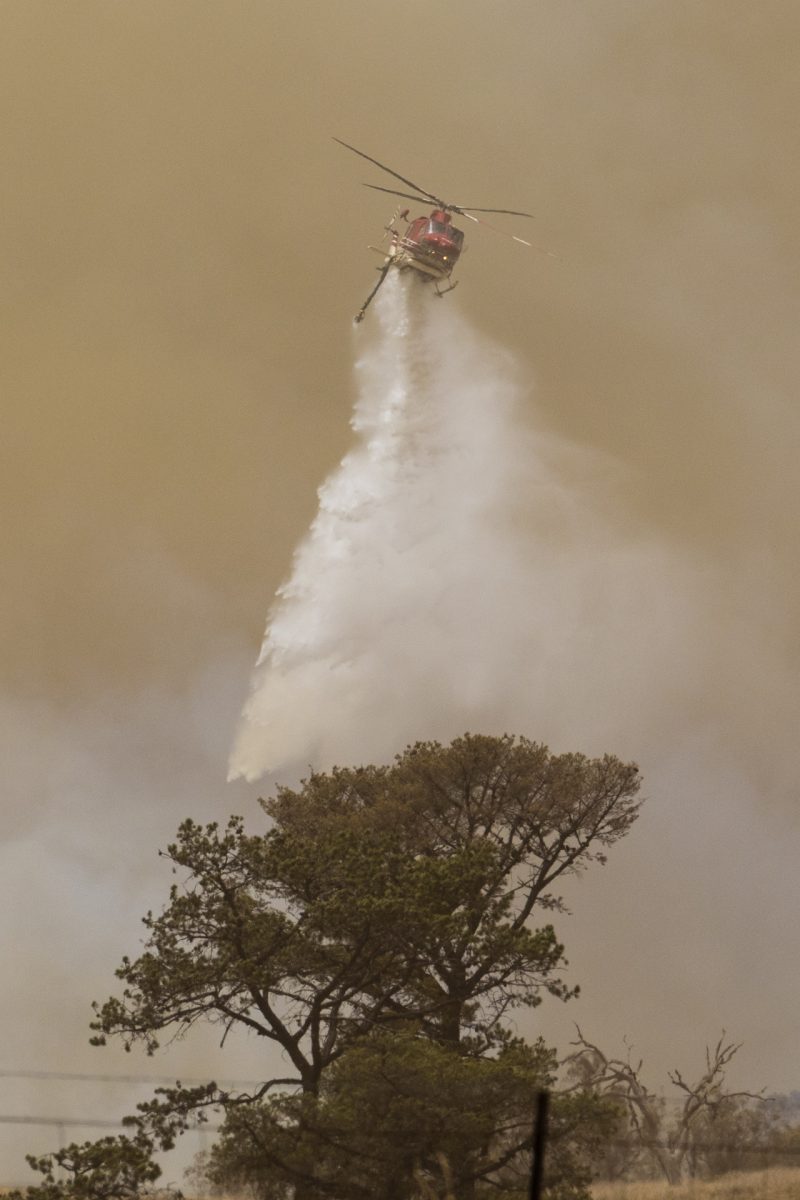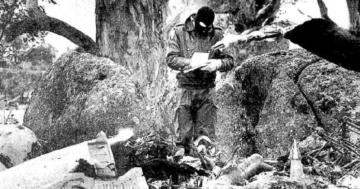
A fire-bombing helicopter in action at Pialligo in January 2020. Firefighters were devastated when a pilot died in a crash in 2018. Photo: Thomas Lucraft.
An investigation into the crash of a fire-bombing helicopter has found it’s likely the pilot suffered an incapacitating medical event while repeatedly water bombing a fire near Ulladulla.
The pilot of the Kawasaki Heavy Industries BK117 helicopter had just filled its slung Bambi Bucket without incident from a dam and departed on a fifth fire-bombing circuit on the afternoon of 17 August 2018. Shortly after, the helicopter diverted off course contrary to the established flight pattern of the Woodburn fire.
The bucket and longline then became caught in trees at the edge of a clearing, causing the helicopter to hit the ground before coming to rest inverted. The pilot was fatally injured and the helicopter was destroyed.
None of the ground or airborne crews heard any radio transmissions from the helicopter immediately before the accident, even though it is standard practice to make a radio call when leaving the circuit for any reason during water bombing operations.
In the minutes before the accident, the pilot responded normally to a NSW Rural Fire Service Air Attack coordinator conducting an “operations normal” radio call and did not report any difficulties at that time.
During an Australian Transport Safety Bureau (ATSB) probe, investigators did not identify any pre-existing defects with the helicopter that may have contributed to the accident.
“The pilot’s post-mortem identified a focus of acute inflammatory change in the heart muscle, a condition known as lymphocytic myocarditis,” Director of Transport Safety Stuart Macleod said.
“This condition is capable of causing sudden impairment or complete incapacitation. The pilot is unlikely to have known they suffered from this condition. There are no risk factors for the development of this condition and it cannot be detected by medical screening.”
The pilot’s post-mortem identified coronary heart disease, which is also capable of causing sudden impairment and incapacitation. However, despite the pilot suffering from these two heart-related conditions, there was insufficient evidence to determine if they contributed to the accident.
“Pilots are reminded that some medical conditions may be undetectable by the normal aviation medical screening process and should remain vigilant for any medical symptoms which may be the precursor to a more serious medical event,” Mr Macleod said.
According to a report released today, the experienced pilot – with a total flying experience of about 7750 hours – was known to use an over-the-counter medication to treat hay fever. Although labelled as non-sedating, this medication was not approved by the Civil Aviation Safety Authority for use while conducting flying operations.
“The pilot was known to have been taking this medication for some time, so any adverse effects on the day of the accident were considered unlikely,” Mr Macleod said.
“However, pilots should also exercise caution when using over-the-counter medications as their availability does not mean they are automatically safe for use while conducting aviation activities.”
Given the vertical compression of the fuselage, the accident was not considered survivable. However, evidence from first responders showed the upper torso restraint (UTR) was worn incorrectly at the time of the accident.
“Although on this occasion the accident was unsurvivable, the use of such a shoulder harness restraint generally reduces the likelihood of fatal head injuries,” Mr Macleod said.
“Pilots are reminded to always use UTRs if they are fitted to the aircraft.”
Original Article published by Kim Treasure on About Regional.













